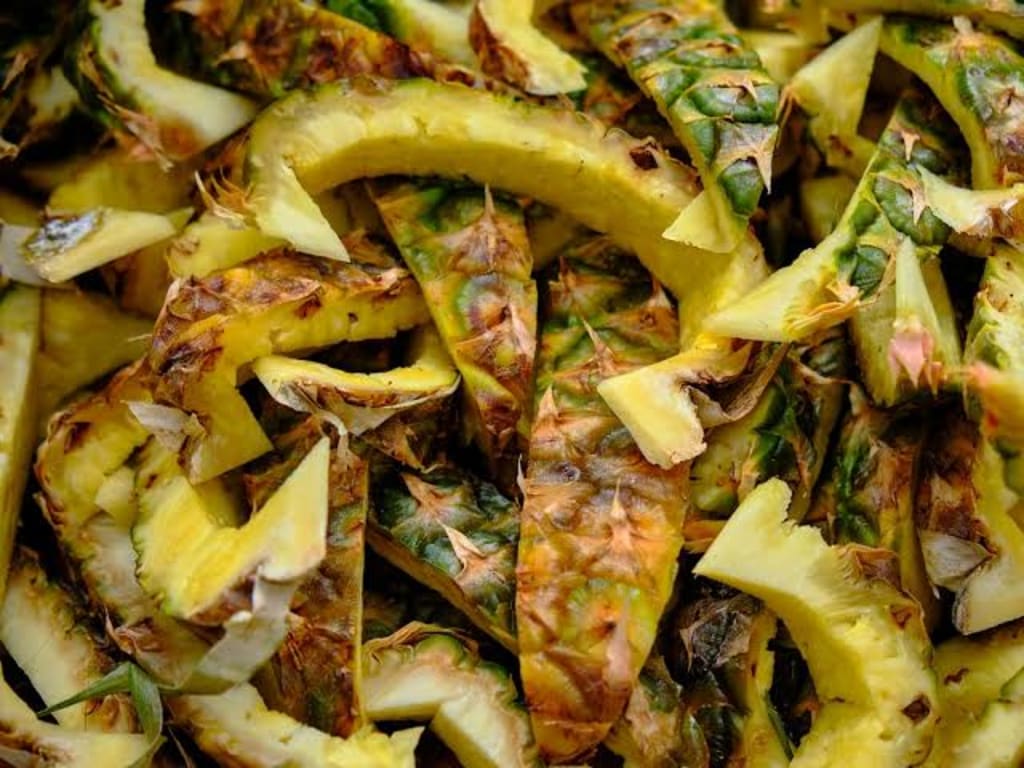World wide waste
Can Pineapple Skin Replace Soap

Approximately half of every pineapple you consume ends up as waste. While the skin and core can be composted, they often aren't in many places. However, one innovative company has found a way to turn fruit scraps into natural soap and cleaners. The founder, lead by example, as he believes these products are not only safer for the planet but also for people - he even drinks them daily. [Music]
Cleaning with enzymes, instead of harsh chemicals, is becoming a new trend. Throughout history, people have used various substances for cleaning, from animal fat to human urine. In the early 20th century, scientists discovered how to create synthetic detergents from fossil fuels, leading to a wide range of synthetic cleaning products. These products have had a negative impact on the environment, as water treatment plants struggle to remove their components, such as phosphorus and nitrogen, which can lead to algae overgrowth in waterways. This has serious ecological consequences.
Biotech companies are now exploring the use of fruit-based cleaners as a more environmentally friendly alternative. One such company, named Fua (short for "fruit warrior"), sources fruit waste from pineapple canneries. These fruit scraps, which used to end up in landfills, are now turned into cleaning products. The process involves fermentation, where microbes break down the fruit scraps into enzymes and acids that have cleaning properties.
The fermentation process takes about three months, during which the mixture transforms into a glob of beneficial bacteria and microorganisms. The resulting liquid is then filtered, and the leftover solids are repurposed as fertilizer for nearby farms. Fua uses locally sourced oils, derived from agricultural waste, to create a range of cleaning products, including dish soap.
Fua's products are not only environmentally friendly but also cost-effective. The company's founder believes in transparency and open sourcing the cleaning formula, making it accessible to others. While cleaning with fermented fruit is a relatively new concept, it shows promise in terms of its cleaning effectiveness and potential benefits for wastewater treatment.
One of the motivations behind Fua's creation was the founder's wife, who developed eczema likely due to exposure to chemical cleaning products. Common chemical cleaners, while generally safe when used correctly, can still pose risks, such as skin irritation and respiratory problems. Additionally, the incorrect mixing of certain cleaners, like bleach, can result in the creation of dangerous gases.
Replacing household bleach and detergents with fermented pineapple-based cleaners is a possibility, but further research is needed to confirm their effectiveness against a broader range of microorganisms. Another challenge is the shelf life of enzyme cleaners, which needs to be addressed.
Despite these challenges, Fua aims to spread the word about a gentler and more eco-friendly alternative to traditional chemical cleaning products. With ample waste from pineapple processing available, the company is working towards a cleaner and more sustainable future.





Comments
There are no comments for this story
Be the first to respond and start the conversation.